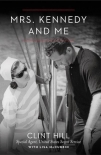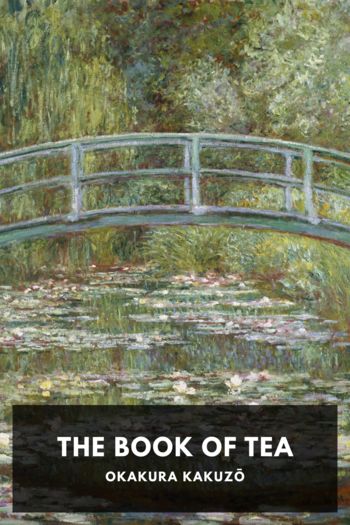Mrs. Kennedy and Me: An Intimate Memoir Clint Hil (read with me .TXT) 📖

- Author: Clint Hil
Book online «Mrs. Kennedy and Me: An Intimate Memoir Clint Hil (read with me .TXT) 📖». Author Clint Hil
The mortician had done a great job. The president looked so peaceful. I closed my eyes, swallowed hard, and stepped aside.
Mrs. Kennedy and the attorney general walked up and looked into the casket. A few seconds went by and Mrs. Kennedy turned to me and said, “Mr. Hill, will you get me a scissor.”
“Yes, of course, Mrs. Kennedy.”
I walked briskly to the usher’s office and got a pair of scissors and brought them to Mrs. Kennedy. I turned around, and took a few steps away to give her and the president’s brother some privacy.
As I stood there, I could hear the sound of the scissors. I knew what she was doing.
Bobby lowered the lid of the casket, and as they turned and began to walk away, the sight and sound of their agony is something I will never forget. Mrs. Kennedy handed me the scissors and they walked to the elevator and went to the living quarters.
General McHugh and I checked the casket to make sure it was closed securely. I looked at my watch and noted the time: 12:46 P.M. That was the last time the casket was opened.
I returned the scissors to the usher’s office, and as I placed them in the drawer, I noticed, at the very tip, a strand of chestnut-colored hair.
As I was walking back to my office, there were several White House staff people standing together and I heard one of them say, “That bastard deserved to die.”
What? I assumed they were talking about the president. I walked over to them and angrily said, “What the hell did you say?”
They told me Lee Harvey Oswald, the person charged with killing the president, had just been shot. I was stunned.
I didn’t have time to dwell on it. The procession to the U.S. Capitol was about to begin.
The military honor guard carried the casket from the East Room of the White House out the North Portico and placed it on a caisson pulled by six white horses. Mrs. Kennedy followed behind, clutching John’s and Caroline’s hands—one child on each side. Members of the family walked behind the three of them, and Paul and I followed. Mrs. Kennedy got into the waiting limousine with her children and the attorney general, as President and Mrs. Johnson slid in with them.
There was a long procession of cars, family members, members of Congress, and Secret Service agents. Pennsylvania Avenue had been closed off, and as we departed the White House, I was shocked by what I saw. As far as the eye could see, there were people. Standing in the cold, along Pennsylvania Avenue all the way to the Capitol, it was a mass of people. Hundreds of thousands. But as we slowly proceeded, following the horse-drawn carriage, the only sound you could hear was the clop-clop of the horses’ hooves hitting the pavement, and the steady beating of the military drums.
I scanned the crowd, as I always did, but I’d never seen a crowd like this before. There were no screams, no shrieks, no requests to stop and shake hands. There was just dead silence, somber faces, and tears.
When we got to the Capitol, Paul and I stayed in position on either side of Mrs. Kennedy. With the American flag high atop the Capitol at half-mast, the military band played the most moving version of “Hail to the Chief” I had ever heard.
Mrs. Kennedy, wearing a sheer black veil over her face, tried to hold in the tears. But it was impossible. Standing next to her, with John and Caroline by her side, I too was struggling to keep my emotions in check.
Nine military pallbearers removed the flag-draped casket from the caisson and began to carry it up the thirty-six steps at the east side of the Capitol. I could see the strain on the faces of the men, and I felt for them. I knew how heavy it was, and the pressure they felt to carry the president with dignity. We walked behind them—Robert Kennedy, Caroline and John, Paul Landis, Mrs. Kennedy, and me.
The casket was placed in the center of the Rotunda, and as members of the Congress, family, and friends observed, the moving ceremony began.
During one of the eulogies, John became rambunctious. He didn’t understand what was going on, why he wasn’t allowed to talk. He had been told, of course, that his father was gone, and not coming back, but he really didn’t understand at all. So two of the children’s detail agents took him to a nearby office to try to keep him occupied.
Senate Majority Leader Mike Mansfield stepped up to the podium, just a few feet away from Mrs. Kennedy and Caroline, and began to speak.
“There was a sound of laughter,” he began. “In a moment, it was no more. And so she took a ring from her finger and placed it in his hands.
“There was a wit in a man neither young nor old,” Mansfield continued, “but a wit full of an old man’s wisdom and of a child’s wisdom, and then, in a moment it was no more. And so she took a ring from her finger and placed it in his hands.”
His voice started to break, but he continued.
“There was a husband who asked much and gave much, and out of the giving and the asking wove with a woman what could not be broken in life, and in a moment it was no more. And so she took a ring from her finger and placed it in his hands, and kissed him and closed the lid of a coffin.
“A piece of each of us died at that moment.”
Mansfield went on to speak of the things President Kennedy gave to all of us, the things he stood for. It was incredibly moving and emotional for all who were there.
A large presidential wreath was brought out, and President Johnson, with his head bowed, placed it at the end





Comments (0)